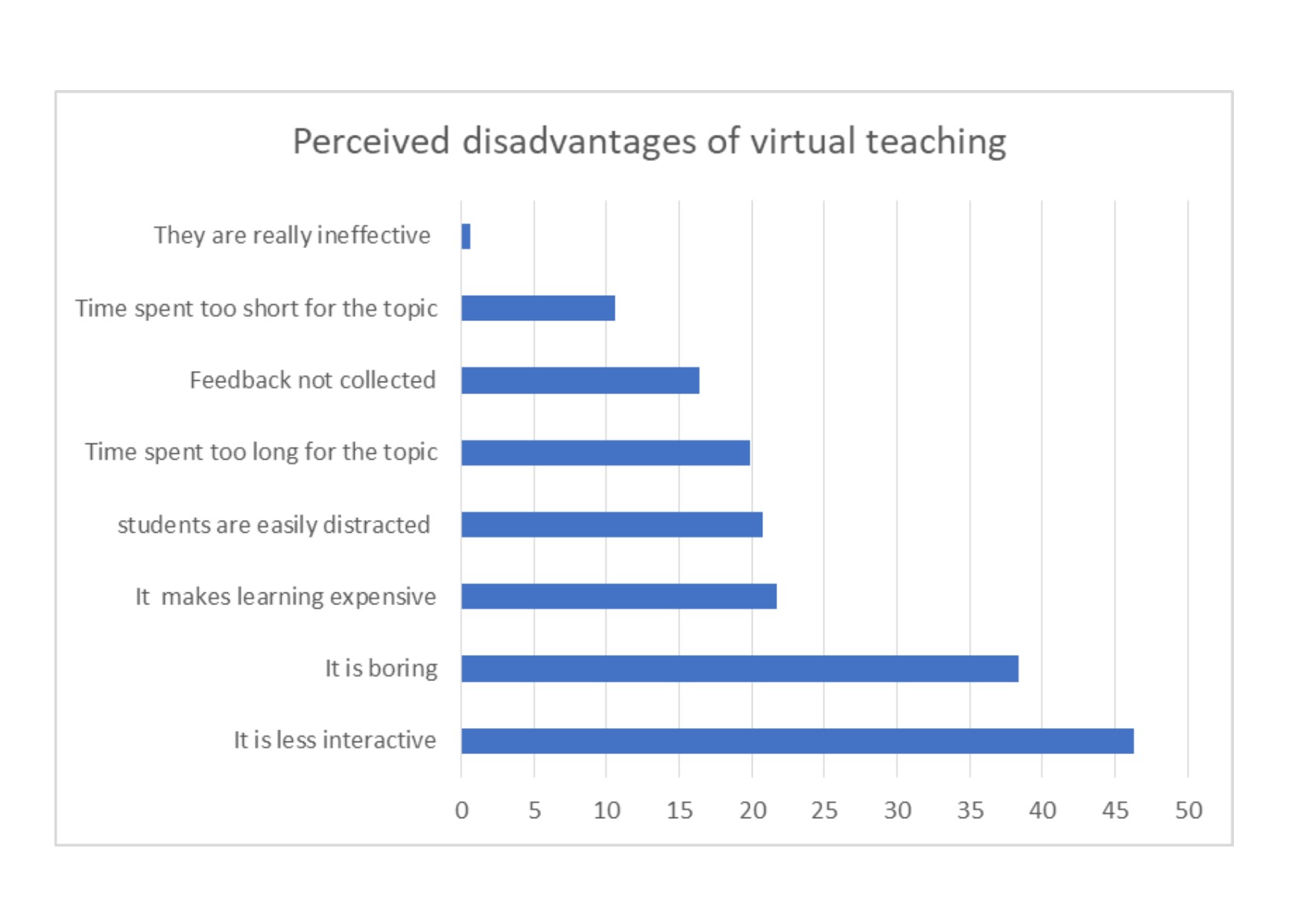THE PERCEPTION OF UNDERGRADUATE STUDENTS OF A COLLEGE OF MEDICINE ON THE EFFECTIVENESS OF VIRTUAL TEACHING DURING THE COVID-19 PANDEMIC
Perception of the effectiveness of Virtual teaching
Abstract
Background: The emergence of the SARS-CoV-2 infection in December 2019 led to significant disruption in traditional teaching and learning activities and the adoption of emergency remote teaching (ERT) and virtual platforms globally. This study aimed to determine the perception of students about the effectiveness, advantages, disadvantages, and challenges experienced with online teaching engagement during the COVID-19 pandemic.
Methodology: A web-based survey of the classes via WhatsApp platforms was conducted among undergraduate students enrolled at the Lagos State University College of Medicine for the 2020–2021 academic session. The responses were exported and analysed using SPSS version 26.
Result: A total of four hundred and thirty-one (431) students participated, with an age range of 18–30 years and a mean of 22.1±2.8 years. About two-thirds of the respondents were female, and the majority (66%) enrolled in medicine and surgery degrees. The mean score for the usefulness of online teaching was 4.12 ± 2.37 on a scale of 10. The most common perceived disadvantages of online teaching are being less interactive (46.3%) and boring (38.4%), while the most perceived advantages are the ease of studying at home (47.8%) and its flexibility (46.3%). The most common reasons for non-attendance at the online lecture are financial (204, 59.8%) (Lack of data), followed by poor internet connectivity (177, 57.9%). About 80% of the students experienced poor internet connectivity, 68% were distracted by activities in their homes, and 75% concluded that online teaching did not sufficiently enrich their academic knowledge. Headaches and eye aches were reported as health challenges following online teaching by 102 (30%) and 74 (21.7%), respectively.
Conclusion: This study revealed students' experiences with virtual learning and the barriers to its effectiveness in delivering the curriculum. The faculty and policymakers need to address the issues highlighted by the students to improve student experiences with such engagements.





